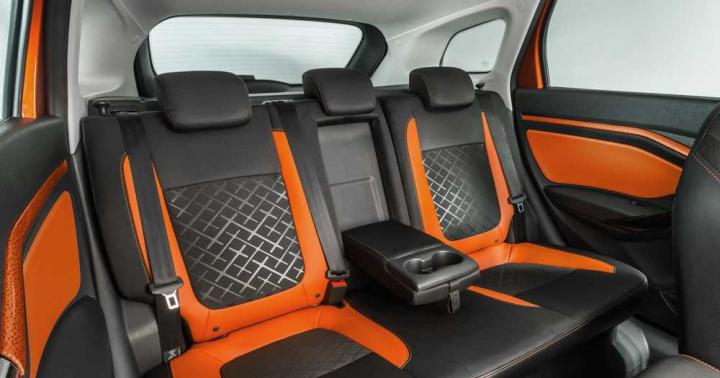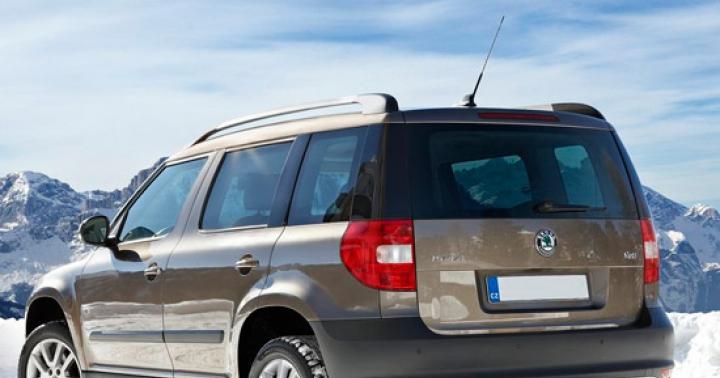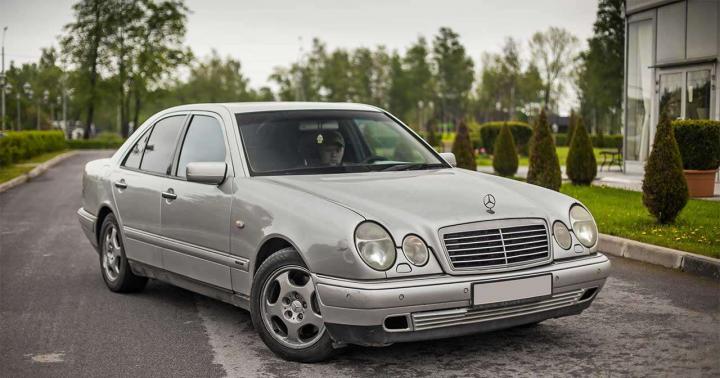The government of the Russian Federation stubbornly persecutes the owners of old vehicles. This time, the owners of buses and trucks of venerable age may face another increase in the transport tax on this particular type. Vehicle.
Thus, the production of new equipment will be further stimulated due to the faster elimination of low-emission vehicles from the market for passenger and freight road transport.
Amendments to the Tax Code are already being developed. According to experts, they will enter into force no earlier than 2019. It is too early to talk about specific tax rates. The document is in the process of being developed by the Ministry of Finance, so the department does not have the final information yet. However, the regions have already received the right to change rates on the basis of their own decision, provided that it does not contradict the Tax Code of the Russian Federation.
Since 2013, the Ministry of Finance has been persistently trying to implement the idea of linking the transport tax to the characteristics of the engine: its volume, environmental class. The decisive factor should be the age of the car. If we consider trucks that move on Russian roads, then the engine of the overwhelming majority does not even correspond to the Euro-2 class. The age of the majority of commercial vehicles in operation is on average 15 years.
According to representatives domestic auto industry, such a number of trucks, of course, causes enormous environmental damage. However, the interest of such "experts" is quite justified. Sell a new domestic truck it is not so easy for an ordinary Russian buyer.
Therefore, it is better to deprive him of the right to drive an existing old truck or bus. And then the domestic consumer will still turn to a car dealership - on a voluntary-compulsory basis. But the car sales plan will probably be exceeded.
However, such a scenario development is not at all necessary. There is still time until 2019. In the meantime, trucks with a Euro-2 class engine are already deprived of the right to move along Moscow streets. And at the same time, owners of electric vehicles are completely exempted from paying transport tax.
Video: Rent of special equipment and transportation services without intermediaries!
In the environmental rating of the subjects of the Russian Federation of the All-Russian Public Organization "Green Patrol" Moscow took the fifth place, having risen by 9 positions over the year. Measures for the development of the urban transport system helped to improve the state of the environment in the capital.
The environmental rating of the constituent entities of the Russian Federation has been published since 2008 and is published four times a year: in winter, spring, summer and autumn. At the end of the winter 2016-2107, Moscow took 5th place. Last winter, the capital was ranked 14th. The basis for calculating the environmental rating is taken from operational data on environmentally significant events, incidents and problems. You can get acquainted with the calculation methodology on the Green Patrol website www.greenpatrol.ru/sites/default/files/_ppt_1_0_0.pdf
According to the rating, the environmental situation in Moscow was influenced by the transport decisions of recent years - the introduction of paid parking, the purchase of new rolling stock public transport, the creation of pedestrian spaces and bike paths under the My Street program, regulation of truck traffic and other initiatives.
Public transport is one of the most environmentally friendly road users on the capital's roads. Since 2013, buses purchased in Moscow comply with the environmental class of the Euro-5 engine. The bus fleet of the carrier SUE "Mosgortrans" has been renewed by 95%. In 2016, 2,000 new environmentally friendly vehicles were launched on the routes thanks to the reform of urban land-based passenger transport. Average age buses of commercial carriers is 1 year, and "Mosgortrans" - 4.9 years.
In the next three years, 100 trams will be delivered to Moscow annually. Each modern three-section tram carries 30% more passengers than a conventional tram. In addition, a new Russian-made electric bus is being tested in the capital.
In 2016, the number of passengers in urban transport increased by 600 million compared to 2010. Muscovites have become wiser to use the car, giving preference to other ways of getting around the city. The launch of traffic on the Moscow Central Circle, as well as the introduction of the new Magistral route network in 2016, made urban transport more convenient and attracted new passengers. The growing popularity of Moscow taxis and car-sharing systems is also helping to reduce the number of personal cars in the city and improve traffic situation, which has a positive effect on the ecological situation in the city.
“The work of the Moscow Government, and in particular the Transport Complex, in the direction of the city reorganization allowed Moscow to enter the top 5 of the environmental friendliness rating. Moscow, almost one year earlier than other regions of Russia, adopted a law on the sale of Euro-5 fuel, which had a positive effect on air quality. The planting of trees, the introduction of paid parking lots, and the restriction of entry have also had a positive effect. freight transport", - said the chairman of the All-Russian Public Organization" Green Patrol "Andrei Nagibin.
“The construction of housing stock, population growth and an increase in the number of cars require new solutions from the Moscow Government to improve the state of urban ecology and improve the quality of life of citizens. In 2017, we will continue to purchase modern and environmentally friendly rolling stock, improve the route network, giving preference to public transport around the city, as well as support the development of alternative transport - cycling, car sharing and electric vehicles, ”said the Deputy Mayor of Moscow, Head of the Department of Transport and Development road transport infrastructure in Moscow Maxim Liksutov.
“Since January 1, 2017, trucks with engines below Euro-3 class cannot enter the Third Transport Ring (TTK) and within its limits, and trucks with engines below Euro-2 class cannot enter the Moscow Ring Road. road(MKAD) and within its limits. About 30% exhaust gases, polluting the air in the area of highways, are thrown out by trucks. Restrictions should stimulate transport companies to update the vehicle fleet to a more modern one. We expect that the restriction on the entry of trucks into the central part of the city will reduce air pollution by 2-3%, which is essential for such a metropolis as Moscow. I think at the end of 2017 we will already be able to assess the effectiveness of this measure, ”said Anton Kulbachevsky, Head of the Department of Nature Management and Environmental Protection of the city of Moscow.
"A new silent and environmentally friendly mode of transport - the electric bus - begins to operate in the capital" - informs mos.ru portal. Commissioning of electric buses on September 1-2 ended unsuccessfully: problems with recharging, inoperative air conditioning systems and other breakdowns.
On September 1, VDNKh hosted a presentation of the first electric bus, which was attended by the candidate for mayor of Moscow Sergei Sobyanin, as well as the head of the Department of Transport Maxim Liksutov.
M-24 posted news prepared in advance https://t.co/vwBv9u0qP0.
The founder of "City Projects" and urbanist Maxim Katz said on his Twitter that the first electric bus with Sobyanin on board traveled 500 meters and broke down. Subsequent starts ended disappointingly: charging problems, inoperative air conditioning, constant stops and breakdowns.
The Moscow City Hall and the media are silent about the current situation. Sergei Sobyanin expected the launch of electric buses to be significant will improve the ecological situation.
So, several times during the mayor's term, the launch of electric buses was announced and such a result is clearly not what S.S. expected to receive. Sobyanin a week before a single voting day.
The city authorities have found a replacement for the usual trolleybuses. Now new ones will move in the center of the capital. eco-friendly buses LIAZ (Euro-5 engine). Modern buses, or rather electric buses, should start moving around the city by the end of December.
Make way for electric buses!
Speaking at the radio station "Moscow speaking", the head of the Moscow Department of Transport Maxim Liksutov spoke about the prospects of the capital's trolleybuses.



During the discussion, he said that the overhead power grid has long been outdated, and this leads to large losses of electricity (about 30%). In addition, the ecological bus, which is planned to be used instead of trolleybuses, will help to purify the air over the city.
Maxim Stanislavovich noted that trolleybus routes will not go anywhere, just new modern buses will appear in their place. And this, in turn, will make life easier for motorists - after all, electric buses have a much greater degree of maneuverability compared to trolleybuses.
Also M. Liksutov emphasized that the tram network has been actively developing in the city for the last few years. Old tracks are being reconstructed, stops appear, a new fleet with modern low-floor trams is purchased.
Ecobuses - the transport of the future
The ecological LIAZ bus with a Man engine of the Euro-5 standard is an excellent alternative to trolleybuses. The new generation Russian bus runs on modern types of fuel (diesel, electricity and gas), it has already passed a number of certification tests and is completely ready for operation.
The new electric bus meets all environmental requirements. The use of the Euro-5 standard will reduce hydrocarbon emissions into the atmosphere by 143 times! Not to mention the emissions of other substances.
In addition, the new series of buses is distinguished by comfortable cabins, the latest air conditioning and heating systems, as well as other fashionable features.
We are for an environmentally friendly lifestyle - including traveling. This time we figure out which type of transport to choose and why.
What does green transport mean?
You can come across expressions green transport, green transport, sustainable transport (or sustainable transport system), sustainable transport. They all mean the same thing - transport that has minimal impact on the environment and climate change. Ideally, such transport promotes social justice and social connections (this is, for example, the advantage of convenient public transport over private cars) and uses energy from renewable sources (rather than oil, which will sooner or later run out). Read more about sustainable transport.
Why is it important?
Another criterion is the energy source of transport. It is almost always worth giving preference to electric vehicles. Ideally, this is energy from renewable sources. Another important point is new transport models. The difference between an airplane old model and an aircraft with a new engine can be enormous: reducing CO2 emissions by up to 20%. Compare emissions different types transport, depending on fuel and workload, you can refer to this plate.
To find out the amount of CO2 emissions, there are several calculators (for example, or) by which you can calculate the environmental impact of your trip, indicating the mode of transport, distance and number of trips. The program will give you the amount of CO2 produced and can give you carbon offset options to which you can transfer money: most often these are programs for planting trees, reforestation, installing wind turbines or solar panels.
I often fly by plane and travel by bus, I feel guilty before nature. What can be done?
Pay attention to whether the carrier companies provide data on CO2 emissions and whether it is possible to make a compensation contribution: often it is enough to tick one more box when buying a ticket and pay a couple of euros more. This money will go to environmental projects around the world. This can be done, for example, with a company that positions itself as an environmentally friendly company (they also use modern buses and urge not to print tickets). Airlines also have emission offset programs. Even if there is no possibility of a contribution, you can always compensate for emissions yourself through various funds (see the link in the previous paragraph).
It is important to remember that the very process of transporting you and your suitcase from one point to another is only part of the cost. There is also the cost of the transport itself, its service life and the method of disposal - indirect costs that are difficult to calculate for one trip. And don't forget that manufacturers love to use words like “green” and “environmentally friendly” for no particular reason, just to get attention. So always check what specific actions and metrics are hidden behind it.


